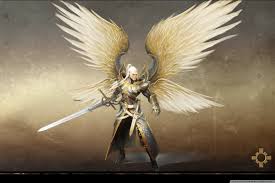might
英 [maɪt]
美 [maɪt]
- n. 力量;威力;势力
- v. 可以;或许(may的过去式);应该
- aux. 可能;也许
- n. (Might)人名;(英)迈特
使用频率:

记忆方法
将“might”与“my tide”联系起来,想象“my tide”是“我的潮流”或“我的命运”,而“my tide might”则意味着“我的命运可能”,这样可以帮助记忆其作为可能性或能力的含义。
以上内容由AI生成, 仅供参考和借鉴
中文词源
might 强大力量,威力,也许
来自古英语miht,来自Proto-Germanic*makhti,来自PIE*magh,使能够,赋予力量,词源同may,magic.引申词义强大力量,威力。后用于助动词表也许。比较may.
英语词源
- might
-
might: [OE] Might goes back ultimately to Indo- European *mag- ‘be able, have power’, the same base as produced the auxiliary verb may. The noun might was formed with the Germanic suffix *-tiz, which also gave German and Dutch macht ‘power’; and the verb might, the past form of may, contains the past inflectional suffix (in modern English -(e)d).
=> may - might (v.)
- Old English mihte, meahte, originally the past tense of may (Old English magen "to be able"), thus "*may-ed." See may (v.). The first record of might-have-been is from 1848.
- might (n.)
- Old English miht, earlier mæht "might, bodily strength, power, authority, ability," from Proto-Germanic *makhti- (cognates: Old Norse mattr, Old Frisian, Middle Dutch, Dutch macht, Old High German maht, German Macht, Gothic mahts), Germanic suffixed form of PIE root *magh- (1) "be able, have power" (see may (v.)).
权威例句
- 1. I thought you might like to read the enclosed.
- 我想你或许想要读一下信封里的内容。
- 2. Today I might hesitate to turn in a burglar.
- 现在让我把入室窃贼送交警方,我可能会有所顾虑。
- 3. Things might have been different if I'd talked a bit more.
- 如果当时我再多说一点的话,结果或许会不一样。
- 4. I might buy one for a friend's birthday as a giggle.
- 我可能会买一件送给朋友当生日礼物,逗他开心。
- 5. I thought a phonetic spelling might aid in pronunciation.
- 我想语音拼写可能有助于发音。
